#german revolution of 1918
Text
Ernst Rohm
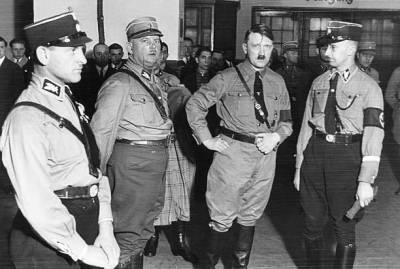
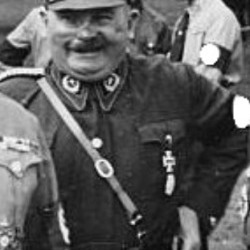
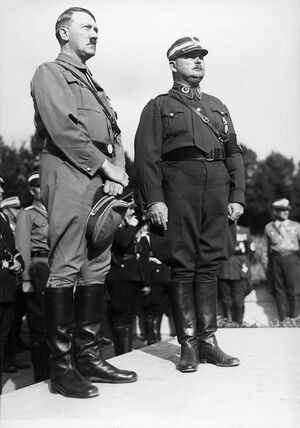
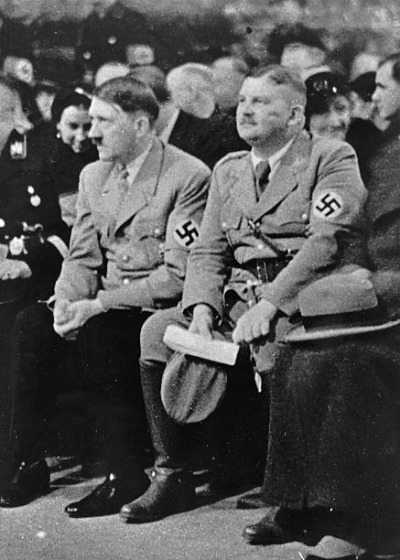

These are some facts and curiosities about Ernst Rohm, The Head of the SA:
He was born on 28th of November, 1887 in Munich.
Although born to a family of state officials and without military traditions, he was a soldier by choice and vocation. His phrase remained famous: "war and unrest attract me more than good bourgeois order".
At the outbreak of the First World War (1914-1918), Röhm served at the front as adjutant of the 1st Battalion of the 10th König Infantry Regiment and the following month was seriously wounded in the face during combat in the Chanot woods in Lorraine. In April 1915 he was promoted to lieutenant and on 20 June 1916 he was decorated with the Iron Cross first class.
At the end of the conflict he returned to Germany where he participated in the ranks of the groups of ex-combatants (freikorps) in the fight against the Bavarian Soviet Republic, proclaimed in Munich after the assassination of its inspirer, Kurt Eisner. Later, he joined the Reichswehr, coming into contact with the extreme nationalist Right.
He addressed Hitler by name and as 'you', the only Nazi to whom this privilege had been conferred.
In 1923 he took part in the Beer Hall Putsch. Shortly afterwards, in 1925, following some conflicts with Hitler, he broke off relations with the leader, agreeing to go to Bolivia to join the local army as a military instructor.
Called home expressly by Hitler in November 1930 to reorganize the SA following the unrest within it, Röhm threw himself enthusiastically into the new task: 170,000 in 1930, in 1933 the SA came to count more than two million members, taking a position of implicit rivalry towards the army.
He was capable of publicly ridiculing Rosemberg's pseudo-mystical ''Aryan philosophy'', causing embarrassment to those who, like Himmler, believed in this philosophy.
He had no respect for those who did not wear uniform and openly despised German civilians whom he dismissed as pigs.
Röhm joined Hitler's first government and was appointed Reichsleiter, the highest position within the NSDAP.
The moment of reckoning came in the summer of 1934, when the Führer received the news, secretly but officially, that the days of the old president, Paul von Hindenburg, were numbered. Hitler himself planned to succeed Hindenburg as president of the Reich, unifying the two positions of president and chancellor in his person and thus making his dictatorship legal and effective.
Hitler needed the immediate support of the army and knew well that, to support his bid for absolute power, it required the sacrifice of Röhm and the SA.
Forced into this difficult position, he absolutely needed a valid pretext to attack Röhm and his former comrades. Röhm's main enemies - Hermann Göring and Heinrich Himmler - took care to provide it to him, assuring him that they had proof that the SA was preparing to carry out a coup d'état against the Reich government, to thus hasten the completion of the "Second Revolution". Most likely it was not true, but Hitler believed - or wanted to believe - the version of his two main lieutenants and ordered them to crush Röhm's putsch.
He died on 1 July 1934 following the night of the long knives.
Sources:
Wikipedia: Ernst Rohm
Paul Roland: Hitler and his Loyalist
if you don't like it go with your life :))
I DON'T SUPPORT NAZISM, FASCISM OR ZIONISM IN ANY WAY, THIS IS AN EDUCATIONAL POST
97 notes
·
View notes
Photo
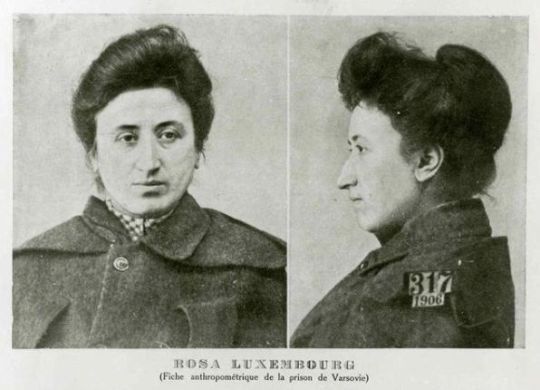
On this day, 5 March 1871, the revolutionary socialist of Polish-Jewish descent Rosa Luxemburg was born. Splitting from the Social Democrats (SPD) when they supported World War I, she co-founded the Spartacus League, which later renamed itself the Communist Party of Germany (KPD), and enthusiastically took part in the German revolution of 1918. Luxemburg was a critic both of the "ultra-centralism" of Russian Bolshevik Vladimir Lenin, and also of reformist socialists, declaring: “People who pronounce themselves in over of the method of legislative reform in place of and in contradistinction to the conquest of political power and social revolution, do not really choose a more tranquil, calmer and slower road to the same goal, but a different goal. Instead of taking a stand for the establishment of a new society they take a stand for surface modifications of the old society... Our program becomes not the realization of socialism, but the reform of capitalism not the suppression of the system of wage labor, but the diminution of exploitation, that is, the suppression of the abuses of capitalism instead of the suppression of capitalism itself.” Luxemburg and her colleague Karl Liebknecht were later murdered by the right-wing paramilitary Freikorps acting on behalf of the SPD in the wake of the failed Spartacist uprising of 1919. More: https://stories.workingclasshistory.com/article/10545/birth-of-rosa-luxemburg https://www.facebook.com/workingclasshistory/photos/a.1819457841572691/2223680981150373/?type=3
228 notes
·
View notes
Text
• 𝐓𝐡𝐞 𝐅𝐢𝐫𝐬𝐭 𝐖𝐨𝐫𝐥𝐝 𝐖𝐚𝐫 •
The First World War accelerated the path to modernity. It was the "Primal catastrophe" of the 20th century, an era of war, violence and displacement. It cost the lives of around 17 million soldiers and civilians, destroyed large parts of Europe and left behind unresolved problems that led to further violent conflicts.
[Without the First World War, the rise of fascism and communism and the transition to systemic competition between West and East, the 20th century cannot be understood.]
The assassination of the Austro-Hungarian heir Franz Ferdinand and his wife in Sarajevo on June 28, 1914 is regarded as the trigger for the First World War. In Vienna, the military pressed for a swift retaliatory strike against Serbia. The German Reich assured Austria-Hungary of its unrestricted loyalty to the Danube monarchy.
On July 28: Austria-Hungary declares war on Serbia - Russia starts mobilization.
On August 1: The German Empire declares war on the Russian Empire.
August 2: Invasion of German troops in Luxembourg.
August 3: Invasion of German Troops in Belgium - the First World War begins.
The age of weapons of mass destruction and industrial warfare began in early 1915 with the German chlorine gas attack on the Ypernbogen. Almost two million German, French and British soldiers died on the barren battlefields and in the trenches of the "Hell of Verdun" in 1916. However, the course of the front changed only slightly as a result of these material battles.
In total, the war claimed 17 million lives. It ended on November 11, 1918 with an armistice and the defeat of the German Reich. In Germany, the monarchy collapsed and the Weimar Republic was founded.
In 1917/1918, numerous monarchies collapsed in quick succession and were replaced by democratic republics, as was the case in Germany in November 1918.
After 1918, no new stable framework of order was recognizable - neither socially, politically nor internationally.
The new models of the Russian Bolsheviks, the fascists in Italy and the National Socialists in Germany were unmistakably opposed to the liberal legacy of the 19th century, not least in their pronounced willingness to use violence. This had to do with the diverse experiences of world war, the transitions from state war to revolution and civil war, as well as the disappointed expectations in many societies in view of the peace treaties of 1919.
#german history#history#teaching#studyblr#studying#booklr#books#literature#I will teach you history on a creative way not the boring teacher way#aestetictumblr#germany#italy#russia#history is important#world war#world war ii#world war 1#20th century#19th century#political#politics#study blog#study motivation#I Love studying lmao unpopular opinion#I’m new on Tumblr#spread knowledge#knowledge#I want to know everything like Faust#important history#historical facts
48 notes
·
View notes
Text
Hitler and Stalin rose to power in Berlin and Moscow, but their visions of transformation concerned above all the lands between. Their utopias of control overlapped in Ukraine. Hitler remembered the ephemeral German eastern colony of 1918 as German access to the Ukrainian breadbasket. Stalin, who had served his revolution in Ukraine shortly thereafter, regarded the land in much the same way. Its farmland, and its peasants, were to be exploited in the making of a modern industrial state. Hitler looked upon collectivization as disastrous failure, and presented it as proof of the failure of Soviet communism as such. But he had no doubt that Germans could make of Ukraine a land of milk and honey.
For both Hitler and Stalin, Ukraine was more than a source of food. It was the place that would enable them to break the rules of traditional economics, rescue their countries from poverty and isolation, and remake the continent in their own image. Their programs and their power all depended upon their control of Ukraine’s fertile soil and its millions of agricultural laborers. In 1933, Ukrainians would die in the millions, in the greatest artificial famine in the history of world. This was the beginning of the special history of Ukraine, but not the end. In 1941 Hitler would seize Ukraine from Stalin, and attempt to realize his own colonial vision beginning with the shooting of Jews and and the starvation of Soviet prisoners of war. The Stalinists colonized their own country, and the Nazis colonized occupied Soviet Ukraine: and the inhabitants of Ukraine suffered and suffered. During the years that both Stalin and Hitler were in power, more people were killed in Ukraine than anywhere else in the bloodlands, or in Europe, or in the world.
Timothy Snyder, Bloodlands: Europe Between Hitler and Stalin
85 notes
·
View notes
Text

Late November 1918, France


The war was over. Byron could barely believe it. So much death and destruction, and suddenly, it was over. The war that had killed his brother, taken his childhood best friends, and murdered most of his friends from university was over.
He had stayed in France longer, meeting with his brother-in-law in Paris to then take a train to Edinburgh, where Edeline was living with Montgomery’s family, having sold the London townhome. The married couple was planning to find a place near his family so Edeline could finish her medical studies at the University of Edinburgh.
“Our sisters are meeting us at the train station, yes?”
Montgomery nodded. “Aye. I expect Elspeth will spend the whole time questioning me politics. She has begun to think that I am not communist enough.”
“That’s a first.”
“Well, I’m still religious. In her words, ‘To be real communist, Monty, ya've gotta be an atheist. Religion is the opium of the people.’ I'm the fuckin' one who got her to read Marx.”
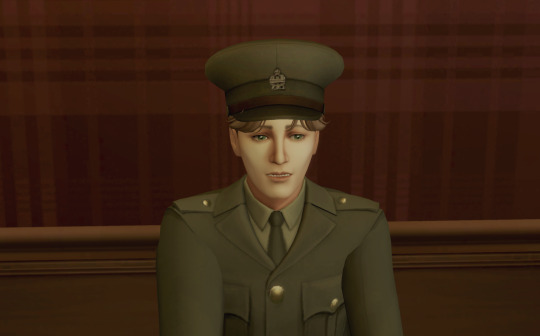

Byron laughed. “Well, contrary to what Marx says, I think opium is the opium of the people.”
The Scot chuckled. “Ya have a point. What, ya’ve read Marx?”
“Yes, and before you start to convert me, I read all sorts of stuff. I find it a good idea to understand ideologies you don’t agree with.”
“Then you don’t think the Russians were right to overthrow their oppressive government?”
“I never said that. But there wasn’t a need to murder the Tsar and his family. They were children.”
“That I agree with.” He frowned. “That isn’t certainly supporting the cause. It will only alienate other nations. I may be a communist, but I don’t believe in senseless murder.”
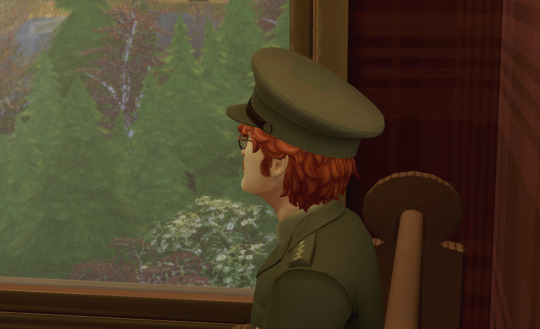
“But if everyone else thinks that communists are murderers, those who are passive will be targeted.” He swallowed. “I mean, communism is a wonderful ideology on paper… but humanity is greedy. To have one person at the center of power until the revolution is finished? That is improbable. Power corrupts, no matter how good your intentions are. Besides, Marx and Engels were upper-middle-class Germans whose families owned factories. Communism was their attempt to solve the inequality. Yet, neither man gave up the comfortability of the middle class to be champions of the proletariat. They only wrote about it. Russia will be the first to put it in theory. I don’t deny that I am curious to see what this Vladimir Lenin will do, but I have a suspicion it won’t end well.”
Montgomery was silent for a few minutes. “...Please don’t start fights with me sister.”
“Of course not, this political discussion will stay on the train. Now that the war is over, I expect that the government will be harsher toward other government philosophies, and communists and socialists will be first on the list. And I doubt my anti-imperialist views and membership of several left-wing political clubs during my time at Oxford will help.”
“Agreed,” he muttered, glancing out the window.
#the walshes#the walsh legacy#ts4#the sims 4#sims 4#sims 4 decades#sims 4 decades challenge#sims 4 historical#ts4 story#ts4 decades challenge#sims 4 history challenge#ts4 historical#ts4 1910s#1910s#ww1#ts4 ww1#wwi#byron walsh#montgomery macgregor
19 notes
·
View notes
Text
"The darkest hour is before the dawn?"
Assembly's view on another year of trench warfare in 2024 (december 2023)
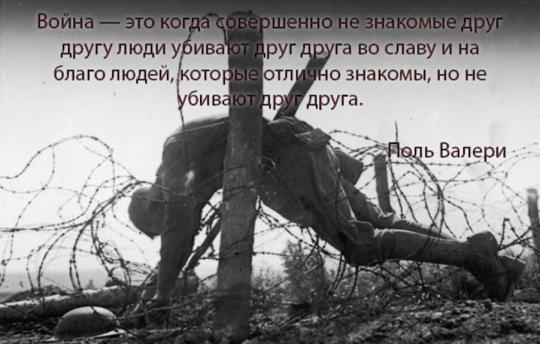
"War is a kind of action, thanks to which people who do not know each other kill each other for the sake of glory and benefit of people who know each other very well, but do not kill each other." (Paul Valéry)
(...)
Stalemate. This word began to appear in almost every analytical material of the Western press about the Russian-Ukrainian war. Since the retreat of the Russian army from Kherson in November last year, the front line has frozen almost without movement, despite the bloody attempts of each side to achieve a turning point in their favor and gain operational space. After the new Verdun – the winter-spring meat grinder near Bakhmut – came a new battle on Somme for a dozen villages in the steppes of the Azov Coast, which from October smoothly turned into another Verdun/Bakhmut around Avdeevka. If it falls, the same will continue on new frontiers a little further. Meanwhile, the mess of mud and corpses in Krynki, perhaps, is already looking like a new Passendale.
If the current positional balance is not compared to the First World War only by the lazy, its finale is not yet remembered so often. It was disrupted by the workers of the warring countries:
“The war did not end in 1918 because of the military defeat of one side or another. The generals would have happily spent a few more years killing millions of people to achieve their goals. It ended because it was against the various armies and populations of Europe took action. Most people know that Russia emerged from the war in 1917 thanks to the Russian Revolution. One of the key factors in the revolution was that the workers and peasants of Russia rebelled against the war and against their own ruling class. What is less known is that that there had been major mutinies in the French army, as well as smaller but equally significant mutinies in the British army, in 1917. The key uprising ended the war was the Kiel mutiny of the German navy in 1918. The High Command, in a desperate attempt to turn the tide of the war, ordered bring the practically intact fleet to sea. However, the naval underground organizations, which included anarchist sailors, were already expecting this. In response, they formed the Soviets and seized their ships, surrounding ports and barracks. This caused a wave of military mutinies and workers' strikes, forcing the panicked ruling class of not only Germany, but also Europe as a whole to sit down at the negotiating table and work out a peace treaty.”
By the time of the probable arrival of Trump or another isolationist candidate for the presidency in the United States, the Russian-Ukrainian war will rage for 3 years already. This is approximately the same amount of time it took for the revolutionary situation to appear then. Neither the barrier detachments, nor the military tribunals, nor the hordes of street screamers for “until the bitter end” helped.
The very threat that those celebrating 2024 in the trenches next New Year will meet on the neutral land, drink 100 grams each and go home with weapons, can become a powerful incentive for the Kremlin and the Ze-Office to begin to negotiate in order to prevent something much more dangerous for both of them option. But even if the scenario of the last century beginning is repeated – instead of, for example, the story of Iran and Iraq, which got stuck in the same massacre for 8 years and then both declared it won, that only strengthened the two regimes – this means that the next year will bring many more rivers of blood. According to BBC News Ukraine, with the new bill on mobilization Ukrainians may be required to appear at the recruitment centers within 48 hours after receiving a summons by email or registered mail. Death postmen will receive more tools to check the military registration documents of citizens on the streets, deliver them to enlistment offices, and put them on the wanted list. For ignoring of summonses, the terms of arrest and fines will be increased, it will be possible to prosecute violators in absentia, and the circle of those entitled to a deferment will be narrowed. It is also proposed military registration for those in prison. Will prisoners want to go to the front, knowing that even law-abiding people, to put it mildly, are not very well trained and equipped – a big question that could threaten prison riots. It will be especially hard for draft evaders who prefer to go to prison rather than fight. When the “Assembly” began to sound the alarm about the fact that Kharkov courts stopped issuing suspended sentences for failure to appear to a unit, many local readers brushed it aside like it is “better to jail than to the grave.” Well, let's see how soon the first will cease to be an alternative to the second.
(...)
According to counting by “Mediazona”, released on the anniversary of the start of Russian mobilization, over the year in the Russian Federation there have been almost four times more sentences for unauthorized leaving of a unit and desertion than there were annually in such cases before the war: since July 2023, courts have handed down more than 500 of them every month.
(...)
It should also be taken into account that the motivation to desert is reduced by the European borders closed to Russians, the social control system in Russian cities, unprecedented in the history of wars, and the predominantly open terrain of south-eastern Ukraine, where it is difficult to hide from the military police.
The decay of the Russian army is also hindered by Ukrainian propaganda, which portrays as enemies all Russian citizens who are not lacqueying for Ukraine, even if they refuse to fight (they say, these are the same “orcs”, only funky). This is being done for the same reason why in the defense of Ukraine the emphasis is on driving people under pressure instead of developing voluntary initiative: horizontal ties at the grassroots are dangerous for anyone holding power. But this same barrack slavery can contribute to the fraternization of yesterday’s workers in camouflage uniforms, quickly making them understand that forced people have nothing to share, and the enemy is those who drive them to slaughter.
Almost right now, was published a statement of Russian soldiers from the Moscow and Ulyanovsk regions about monetary extortions and beatings from the command. Servicemen of military unit 41680 stated that two weeks after signing the contract, they were sent to an assault on the Avdeevka direction without training or preparation. From their words, most fighters are “beaten and kept in basements” before a mission."
...
15 notes
·
View notes
Text
Old Internet Fridays #6: Marxist Internet Archive Library

Marxist Internet Archive Library
What’s this?
-
What’s this website?
An archive of primary sources and short summary remarks on prominent Marxists, and associated historical events. It's a very old-school HTML archive, few widgets, text-heavy, independently maintained.
Okay, how did you find it?
I figured I'd do a history-focused sniff around and ended up in the bibliography for one of my favourite podcasts, Mike Duncan's Revolutions (highly recommend, by the way). This one was one of the few easily online-accessible sources (most are books).
How’s it doing on Internet Archive?

Saved a delightful 899 times-- a great thing for a site that archives so many primary sources.
What delighted you the most?
First and foremost-- it's just very old internet-feeling, you know? The blocky menu, the links upon links on the page, heading on to solid pages of text. I've sort of bookmarked it mentally to look into more deeply at another time. I definitely don't consider myself well versed in theory by any means, and this seems like a neat way to find some resources.
I read one page, Rosa Luxembourg's summary page, and then a published piece from 1918, on her opposition to the Treaty of Brest-Litovsk. These were interesting to me because of Mike Duncan's Revolutions. One critique I have of this is I am a little skeptical this isn't a translation-- given that Spartacus was a German Socialist movement, it feels right that it would have originally been published in German. I was unable to find another source corroborating this hunch, though.
One further remark is reading independently maintained archives, one wonders a little more than Wikipedia who is keeping them up and how. One neat aspect is they do have biographies for their volunteers-- here is a guy I came across on my travels.
20 notes
·
View notes
Text
(Don’t) PARTY LIKE IT'S 1918!

Enemy Activities - German Revolution, War Department, World War I Photographs, 1917-1918, NARA ID 31478385.



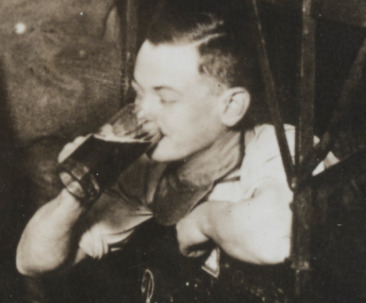
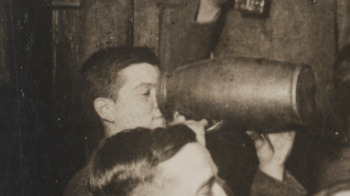
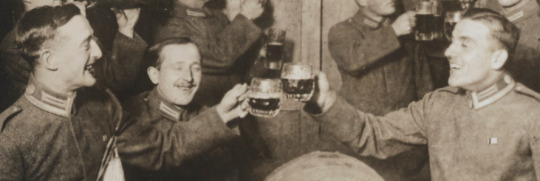

From our online catalog, emphasis added:
The photographic files of the Historical Branch, War Plans Division, War Department General Staff were assembled by the Committee for Public Information and considered to be the “Unofficial Collection of World War I Photographs"... Some of the photographs depict the unity of the nation and how overwhelming the war effort was.
In contrast, U.S. Army officers on New Year's Day 1919:
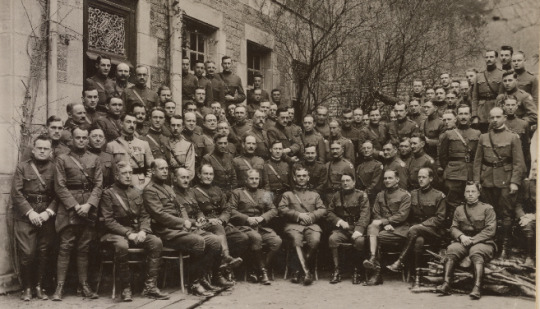
Staff Officers of 5th Army Corps Hq. On New Years Day with Major Gen. C.P. Summerall who gave a New Year’s party to his staff. NARA ID 86709262.
Related: See highlights from curator Bruce Bustard’s incredible Spirited Republic National Archives exhibit.
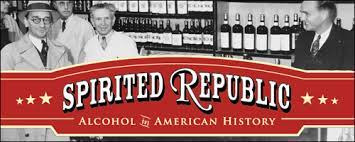
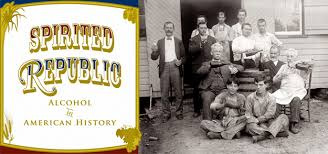
#new years#new years eve#world war I#party like its#beerlover#spirits#spirited republic#new year#happy new year#celebrate#new years eve party#new years eve 2022#wine#wine cellar#winelover
83 notes
·
View notes
Text
Alfred Rosemberg

This is Alfred Rosemberg, the ideologue of the Nazi Party, timeline:
1893: He was born in Reval.
1911: He graduated from the Petri-Realschule in Reval and enrolled at the Riga Polytechnic.
1914: The First World War began.
1914: The headquarters of the Polytechnic University was temporarily moved to Moscow.
1915: He married his first wife, Hilda Leesmann.
1917: He participated in the Russian revolution on the side of the counter-revolutionaries.
1918: The first world war ended.
1918: He immigrated to Germany.
1918: He contributed to Dietrich Eckart's publication, the Völkischer Beobachter.
1919: He published his two anti-Semitic treatises, The Journey of the Jews Through the Centuries and Immorality in the Talmud.
1919: He conceived a theory about a global Judeo-Bolshevik-Masonic conspiracy.
1919: He joined the Nazi Party
1923: He became the editor of the Völkischer Beobachter
1923: After the failed Beer Hall Putsch, Hitler appointed Rosenberg as a leader of the National Socialist movement, a position he held until Hitler's release. Hitler remarked privately in later years that his choice of Rosenberg, whom he regarded as weak and lazy, was strategic.
1923: He divorced his first wife.
1924: Hitler was released.
1925: He married his second wife, Hedwig Kramer.
1929: He founded the Militant League for German Culture.
1930: His only daughter, Irene Rosemberg, was born.
1930: He became a Reichstag Deputy
1930: He published his book on racial theory The Myth of the Twentieth Century.
1932: He participated in the Volta Conference.
1933: Adolf Hitler was appointed Chancellor of Germany.
1933: He was assigned the role of "Delegate of the Führer for the education and intellectual and philosophical formation of the National Socialist party".
1933: He visited Britain, intending to give the impression that the Nazis would not be a threat.
1933: He was appointed "Responsible for Foreign Affairs for the Party".
1934: Hitler granted Rosenberg responsibility for the spiritual and philosophical education of the Party and all related organizations.
1939: Again due to his strong knowledge of the Jewish question, he founded the "Institute for studies on the Jewish question" on Hitler's orders.
1939: The Second World War began.
1940: He founded his own operational staff, called Einsatzstab Reichsleiter Rosenberg (or Commando Rosenberg), which was mainly (if not exclusively) responsible for stealing works of art from all the occupied territories of Europe but particularly from France.
1940: He was made head of the Hohe Schule (literally "high school", but the German phrase refers to a college), the Centre of National Socialist Ideological and Educational Research.
1941: He was appointed minister of the occupied territories.
1942: He issued an Agrarian Law annulling all Soviet legislation on farming, restoring family farms for those willing to collaborate with the occupiers
1945: The Second World War ended.
1945: He was captured by the Allies.
1945: He was tried at the Nuremberg trials.
1946: He was found guilty and sentenced to death.
1946: He died.
Sources:
Wikipedia: Alfred Rosemberg
MIlitary Wiki: Alfred Rosemberg
❗❗I DON'T SUPPORT NAZISM,FASCISM OR ZIONISM IN ANY WAY, THIS IS JUST AN EDUCATIONAL POST❗❗
16 notes
·
View notes
Photo

On this day, 15 January 1919, socialists Rosa Luxemburg and Karl Liebknecht were murdered in Berlin by the right-wing paramilitary Freikorps who were acting on the orders of the Sozialdemokratische Partei Deutschlands (Social Democratic Party of Germany; SPD). Luxemburg and Liebknecht had played an important part in the German Revolution of 1918–1919. https://www.facebook.com/workingclasshistory/photos/a.1819457841572691/2187233231461815/?type=3
173 notes
·
View notes
Photo



A7Vs in service with the German Freikorps, during the German Revolution of 1918-19
42 notes
·
View notes
Note
Was the Bolsheviks' failure inevitable as a result of democratic centralism, and authoritarianism and the low value they placed on human life? or could things have gone very differently if Stalin didn't take power? (1000 words pls)
Re: this post on my sideblog
A small nitpick but I try and avoid using the word "authoritarianism" - it has a lot of connotations but isn't sufficiently specific.
Nothing is written in stone until it happens, but I do think the Bolsheviks were doomed, more or less. I don't think the purges were inevitable, but collectivization at a minimum probably was.
The underlying issue that no amount of organizing or ideological purity or state terror or legal reform could change was that the USSR was poor. Russia was poor to start and then it went through WWI and the civil war in short succession and got much poorer.
Communism was supposed to happen in industrialized countries - the German Revolution of 1918 was supposed to leave them a communist state that could use its advanced industrial base to support Russia, its backward cousin.
Instead, the USSR had to try and speedrun the industrial revolution on its own, condensing centuries of bloody capitalist accumulation into a decade and change of even bloodier socialist accumulation. This was not going to be pretty. Everything - all of horrors - can be tied back to this basic fact.
Stalin fucked up the USSR in a lot of ways - he built a cult of personality they never really recovered from, he killed genuine worker participation in the party, and he ordered a shitload of people murdered in a way that warped the country mere years before WWII.
But the USSR was never going to be democratic, in any real sense. Most of the country were peasants! They had few common interests with this party of workers and their ideology of collectivization. They were also doomed - if not by communism, then by capitalism, because peasant classes do not tend to do well under any type of industrialization - but if they had a voice, it would've been against the party.
Maybe the real question is about what came after Stalin and collectivization and industrialization - whether Khrushchev and his successors could've made something more than the stagnant, bureaucratic mediocrity that was the late USSR. Certainly, China seems like they've done a lot better at that than the USSR did, though I leave it to you whether you consider them a success story.
66 notes
·
View notes
Photo

Sailors mutiny in Kiel, Germany, October 1918. The mutiny, which occurred in the last months of World War I and led to a general revolution, was fueled by Germans’ dissatisfaction with the way the German government had conducted the war. The sailors took inspiration from the Russian Revolution.
{WHF} {Ko-Fi} {Medium}
71 notes
·
View notes
Note
Hi! Where do you read letters and diaries of NAOTMAA? Do you read it online and if not where do you buy books? I luv ur blog sm ❤️🩹🙃
Hello! Thank you for your question and compliments!
I read the diaries and letters from physical books. A few books are online, and Olga and Tatiana's diaries are online, but require institutional access - you can see more about that here.
If you have an amazon prime account or free trial, you can read some online using the kindle app.
The most prolific translator is Helen Azar, who collaborates often with George Hawkins and Nicholas B. A. Nicholson.
I am going to list all the books that I am aware of that are dedicated purely to translations:
1895 Diary of Tsar Nicholas II, Lottie Bailey
1913 Diary of Grand Duchess Maria Nikolaevna: Complete Tercentennial Journal of the Third Daughter of the Last Tsar, Helen Azar, Amanda Madru
A Lifelong Passion, Andrei Maylunas, Sergei Mironenko (this book is huge, almost 800 pages, and has translated letters and diaries from Nicholas and Alexandra, some of OTMA's notes, and extended family)
Alexei: Russia's Last Tsesarevich - Letters, diaries and writings, George Hawkins
Anastasia Romanov: The Tsar's Youngest Daughter Speaks Through Her Writings, Helen Azar, George Hawkins
Correspondence of the Russian Grand Duchesses: Letters of the Daughters of the Last Tsar, George Hawkins
In the Steps of the Romanovs: Final Two Years of Russian Imperial Family (1916-18), Helen Azar
Journal of a Russian Grand Duchess: Complete Annotated 1913 Diary of Olga Romanov, Eldest Daughter of the Last Tsar, Helen Azar
MARIA and ANASTASIA: The Youngest Romanov Grand Duchesses In Their Own Words, Helen Azar
MARIA ROMANOV: THIRD DAUGHTER OF THE LAST TSAR. Diaries and Letters 1908-1918, Helen Azar, George Hawkins
Romanov Family Yearbook: On This Date in Their Own Words, Helen Azar, Amanda Madru
Russia's Last Romanovs: In Their Own Words, Helen Azar
Tatiana Romanov, Daughter of the Last Tsar: Diaries and Letters, 1913–1918, Helen Azar, Nicholas B.A. Nicholson
The Complete Wartime Correspondence of Tsar Nicholas II and the Empress Alexandra, April 1914-March 1917 (Documentary Reference Collections), Joseph Fuhrmann (at a whopping 800 pages, this book went out of print several years ago. It not sells for over $100 regularly, though you can get it cheaper second hand. It is the only completely uncut edition of all of Nicholas and Alexandra's telegrams and letters during WWI.)
The Correspondence of the Empress Alexandra of Russia with Ernst Ludwig and Eleonore, Grand Duke and Duchess of Hesse. 1878-1916, Petra H. Kleinpenning (includes both the original German letters and English translations)
The Diary of Grand Duchess Olga Nicholaievna - 1913, Marina Petrov, Reagan Baker
The Diary of Olga Romanov: Royal Witness to the Russian Revolution, Helen Azar
The Last Diary of the Tsaritsa Alexandra, Vladimir Khrustalev, Robert K. Massie
Diaries and letters are occasionally quoted by historians in their books, but books solely dedicated to these writings tend to not be online for free reading unfortunately. However, here are a few:
Nicholas's 1917-1918 diary is translated and available to read for free here!
A Lifelong Passion is available to read for free here!
Anna Vyrubova includes a few letters from Alexandra, which you can read for free here!
My recommendations if you are just starting to get into the Romanovs and their writings would be either A Lifelong Passion, Correspondence of the Grand Duchesses, and the diaries and letters of OTMAA. Note that some of the other books by Azar have letters from other members of the family, rather than being focussed on just one member, so expect repeated letters and diary entries if you decide to purchase all of her books. For example, letters published in Maria's book are also published in the book dedicated to Maria and Anastasia.
In terms of where I buy them, I like to get my books second hand - helps out the planet and also means that you usually can get a good discount!! Translated books often aren't cheap, because of the time and money spent visiting archives and translating each piece of writing individually. For example, I managed to get a book almost 70% cheaper than the retail price by buying it second hand. I use websites like eBay, WOB (world of books), and abebooks.
I hope that this was helpful!
14 notes
·
View notes
Note
Then isn’t it the Hatian’s duty to oppose slavery and western intervention?
I never said they shouldn't have rebelled, but perhaps the slaughter of all the white adults and kids, and the mixed adults and kids was wrong.
And perhaps, it's also wrong to blame Haiti's mismanagement on people other than their own corrupt government, for instance, why blame mass deforestation and overfishing on a NATO conspiracy rather than Haiti's own incompetence?
Hell, it seems the only reason the Dominican Republic managed to grow from being a forgotten Spanish colony, was to reject Haitian hegemony over the island, declaring their own sovereignty in 1844.
Later the Spanish Crown recognized their independence in 1865, while Haiti chose to live as the people they overthrew did, they made the lower class their slaves while the upper class lived like slavers.
The leader of Haiti created a system of coerced plantation agriculture, it was a military government run by the greedy, in essence, they overthrew tyranny and imposed further tyranny that led to race based genocide.
From 1824-26, while the island was under one government, they promoted the largest single free-Black immigration from the United States in which more than 6000 immigrants settled in different parts of the island.
Today remnants of these immigrants live throughout the island, but the larger number reside in Samaná, a peninsula on the Dominican side of the island, the Free American Blacks even chose the Dominican over Haitian rule.
From 1843-1915 Haiti underwent many governmental changes, most caused by revolt, however these revolts also replaced tyrants with tyrants, mostly caused by the Haitian military.
Though, for a brief period beginning in 1874, Haiti experienced democratic peace and development, this period of relative stability and prosperity ended in 1911, when revolution broke out and the country slid once again into disorder and debt.
From 1911 to 1915, there were six different presidents, each of whom was killed or forced into exile.
In this time, 200 Germans chose to migrate to Haiti and integrate, they invested in infrastructure, education and so on, it greatly helped Haiti, however their aide was given indiscriminately, many opposed factions in Haiti used the German money to fuel revolts and violence.
In 1915, Vilbrun Guillaume Sam established a dictatorship, but in July, facing a new revolt, he massacred 167 political prisoners, all of whom were from elite Haitian families, and was lynched by a mob in Port-au-Prince.
The US at the time had taken on quite a large sum of Haitian debt, and summarily occupied Haiti from 1915-1934 to get Haiti to pay off its debt, under the supervision of the US Marines, the Haitian National Assembly elected Philippe Sudré Dartiguenave president. He signed a treaty that made Haiti a de jure US protectorate, with American officials assuming control over the Financial Advisory, Customs Receivership, the Constabulary, the Public Works Service, and the Public Health Service for a period of ten years.
The Marines and Gendarmerie initiated an extensive road-building program to enhance their military effectiveness and open the country to US investment. Lacking any source of adequate funds, they revived an 1864 Haitian law, discovered by Butler, requiring peasants to perform labor on local roads in lieu of paying a road tax.
In 1915, Haiti had 3 miles (4.8 km) of road usable by automobile, outside the towns. By 1918, more than 470 miles (760 km) of road had been built or repaired through the corvée system, including a road linking Port-au-Prince to Cap-Haïtien.
In 1919, a new uprising began vowing to 'drive the "invaders" into the sea and free Haiti, the revolutionaries were killed and the Marines posed with their leader's corpse.
The Great Depression decimated the prices of Haiti's exports and destroyed the tremendous financial gains of the previous decade, the Haitians believed this was a return to when the elite of Haiti would rule with an iron fist, and began another revolt.
This led Herbert Hoover to appoint two commissions, including one headed by a former US governor of the Philippines William Cameron Forbes, which criticized the exclusion of Haitians from positions of authority in the government and constabulary.
In 1930, Sténio Vincent, a long-time critic of the occupation, was elected president, and the US began to withdraw its forces. The withdrawal was completed under US President Franklin D. Roosevelt (FDR), in 1934, under his "Good Neighbor policy".
The transition government was left with a better infrastructure, public health, education, and agricultural development as well as a democratic system.
The country had fully democratic elections in 1930, won by Sténio Vincent. The Garde was a new kind of military institution in Haiti. It was a force manned overwhelmingly by black Haitians, with a United States-trained black commander, Colonel Démosthènes Pétrus Calixte.
Most of the Garde's officers, however, were mulattoes. The Garde was a national organization; it departed from the regionalism that had characterized most of Haiti's previous armies. In theory, its charge was apolitical—to maintain internal order, while supporting a popularly elected government. The Garde initially adhered to this role.
I can go on, Haiti was fucked over by Haitians more than it was ever fucked over by foreigners, so I say, the only thing you can blame whites for is Haiti's very French way of showing civil unrest.
28 notes
·
View notes